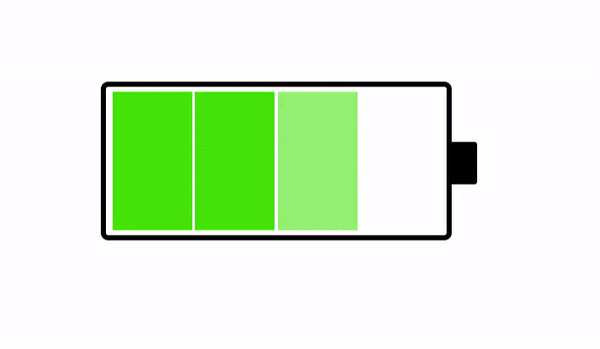Literacy > Establishment Types
Establishment Types
Property Type | Establishment Type | Business Type |
|||
| Lodging Property | Tourist Lodging | Hotel | Tourist Hotel | Hotel Business | |
| Floating Hotel | |||||
| Traditional Hotel | |||||
| Family Hotel | |||||
| Hostel | |||||
| Small Hotel | |||||
| Medical Hotel | |||||
| Resort Condo | Resort Condo Operation | ||||
| General Lodging | General Lodging | Yeogwan | Yeogwan Business1 | ||
| Yeoinsuk | Yeoinsuk Business1 | ||||
| Residential Lodging | Residential Lodging | Other General & Residential Lodging | |||
| Multi-Living2 | Gosiwon | Dormitory & Gosiwon Operation | |||
| Multi-Family3 | Dormitory | ||||
| Single-Family4 | Minbak | Rural Minbak | Minbak Business | ||
| Multi-Family3, Single-Family4 | Urban Minbak | ||||
| Shared Lodging | Shared Lodging5 | ||||
| Campsite Facility | Campsite | General Campsite | Campsite Business | ||
| Auto Campsite | |||||
| Open Use6 | Other Lodging7 | Hanok Stay | Other General & Residential Lodging | ||
| Tourist Pension | |||||
| Hasuk | Other Miscellaneous Lodging | ||||
| Forest Resort | Natural Park Operation8 | ||||
| Training Facility | Youth Lodging7 | Youth Training Center | Youth Training Facility Operation8 | ||
| Youth Campsite | |||||
| Youth Hostel | |||||
Notes
- 'Yeogwan' and 'Yeoinsuk' were integrated into 'Lodging Business' in August 1999 when the "Public Health Act" was replaced by the "Public Health Control Act", and in January 2012, the 'Lodging Business' was divided into 'General Lodging Business' and 'Residential Lodging Business'. In the "Building Act", in May 2013, 'Yeogwan' and 'Yeoinsuk' were integrated into 'General Lodging Property', and 'Residential Lodging Property' was added. In the 11th KSIC, 'Yeogwan' has been used so far, and 'General Lodging Business' and 'Residential Lodging Business' are not expressly separated. In the "Business Code", 'Yeogwan' and 'Yeoinsuk' have been used so far, and 'General Lodging Business' and 'Residential Lodging Business' are not expressly separated. Given the fact that there are many lodging establishments that opened as 'Yeogwan' or 'Yeoinsuk' before 1999 and are still open to date, Lobin's classification of lodging establishment types is based on the "Business Code" to account for the situation at the time.
- 'Gosiwon' with the floor area greater than or equal to 500㎡. (If the floor area is less than 500㎡, the facility will be classified as a 'Neighborhood Living Property' instead of a 'Lodging Property')
- For dormitories, the building type classified as multi-family housing refers to dormitories within multi-family housing as defined under the Building Act. For shared lodging and urban minbak, the building type classified as multi-family housing refers to apartments, row houses, and multi-family houses within multi-family housing as defined under the Building Act.
- For rural minbak, shared lodging, and urban minbak, the building type classified as single-family housing refers to single-family houses and multi-household houses within single-family housing as defined under the Building Act (excluding multi-unit houses).
- 'Shared Lodging' is not listed in the "11th Korean Standard Industrial Classification", but listed in the "Business Code" as a sub-category of 'General and Residential Lodging Business'. However, its designated property type is either 'Single-Family House' or 'Multi-Family Housing', which is identical to 'Urban Minbak, not corresponding to 'Dormitory and Gosiwon Business'. The business type is moved to 'Minbak Business' from 'General and Residential Lodging Business' in Lobin's lodging establishment types.
- Open Use refers to cases where an activity is included in the lodging business under the KSIC, or falls under a category of tourism businesses as defined in Article 2 of the Enforcement Decree of the Tourism Promotion Act that includes a lodging function, but where the building use of the facility performing the lodging function is not explicitly specified.
- 'Youth Lodging' and 'Other Lodging' are not clearly defined in the relevant laws and regulations, but they are classified independently here taking into consideration of their unique requirements for the property type and the business type.
- ‘Natural Park Operation’ falls under ‘Arts, Sports and Recreation Related Services’ and 'Youth Training Facility Operation' falls under 'Education Services', instead of 'Lodging Business' in the Business Code. However, they are included in this classification system as they are often in direct competition with lodging establishments.
※ ‘Establishment Types’ is our own classification system incorporating statutory requirements for building types and business types in regard to relevant establishment types.
Check out the evelotion of lodging establishment types in Korea, from beginning till now.

